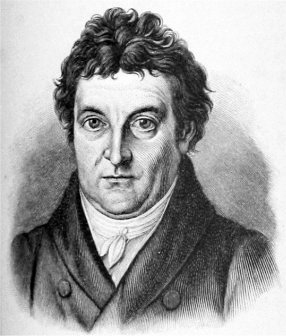Иоганн Готлиб Фихте знаменитые цитаты
Иоганн Готлиб Фихте Цитаты о природе
Источник: Назначение человека
мышление
Источник: Основные черты современной эпохи
Иоганн Готлиб Фихте цитаты
„Идея есть самостоятельная, живая в себе и оживляющая материю мысль.“
мысль
Источник: Основные черты современной эпохи
система, свобода
Источник: Сочинения. Работы 1792-1801 гг.
разум
Источник: Основные черты современной эпохи
восприятие
Источник: Наукоучение 1801 года
цель
Источник: Назначение человека
Иоганн Готлиб Фихте: Цитаты на английском языке
Addresses to the German Nation (1807), Second Address : "The General Nature of the New Education". Chicago and London, The Open Court Publishing Company, 1922, p. 21
Paraphrased variant: The schools must fashion the person, and fashion him in such a way that he simply cannot will otherwise than what you wish him to will.
Источник: The Characteristics of the Present Age (1806), p. 16
Источник: The Characteristics of the Present Age (1806), p. 20
Addresses to the German Nation (1807), Second Address : "The General Nature of the New Education". Chicago and London, The Open Court Publishing Company, 1922, p. 20.
Johann Fichte Letter to Johanna Rahn from Johann Gottlieb Fichte's popular works: Memoir and The Nature of the Scholar<!--pp. 14-15--> https://archive.org/stream/johanngottlieb00fichuoft#page/14/mode/1up
Источник: The Vocation of Man (1800), P. Preuss, trans. (1987), p. 4
Consequences of the Difference p. 85
Addresses to the German Nation (Reden an die deutsche Nation) 1808, Fifth Address
Consequences of the Difference p. 75
Addresses to the German Nation (Reden an die deutsche Nation) 1808, Fifth Address
The Chief Difference Between The Germans And The Other Peoples Of Teutonic Descent p. 59
Addresses to the German Nation (Reden an die deutsche Nation) 1808, Fourth Address
General Nature of New Eduction p. 45
Addresses to the German Nation (Reden an die deutsche Nation) 1808, Third Address
“Education to true religion is the final task of the new education.”
General Nature of New Eduction p. 38
Addresses to the German Nation (Reden an die deutsche Nation) 1808, Third Address
General Nature of New Eduction contiunued p. 31
Addresses to the German Nation (Reden an die deutsche Nation) 1808, Third Address
General Nature of New Eduction p. 28
Addresses to the German Nation (Reden an die deutsche Nation) 1808, Second Address
General Nature of New Eduction p 21
Addresses to the German Nation (Reden an die deutsche Nation) 1808, Second Address
Introduction p. 9-10
Addresses to the German Nation (Reden an die deutsche Nation) 1808, First Address of Fourteen
Introduction p. 1
Addresses to the German Nation (Reden an die deutsche Nation) 1808, First Address of Fourteen
Источник: The Way Towards The Blessed Life or the Doctrine of Religion 1806, p. 78
Источник: The Way Towards The Blessed Life or the Doctrine of Religion 1806, P. 56
Источник: The Way Towards The Blessed Life or the Doctrine of Religion 1806, P. 26-27
Источник: The Way Towards The Blessed Life or the Doctrine of Religion 1806, P. 17
Источник: The Characteristics of the Present Age (1806), p. 268
Источник: The Characteristics of the Present Age (1806), p. 264
Источник: The Characteristics of the Present Age (1806), P. 213-214
Источник: The Characteristics of the Present Age (1806), p. 197
Источник: The Characteristics of the Present Age (1806), p. 192
Источник: The Characteristics of the Present Age (1806), p. 186
Источник: The Characteristics of the Present Age (1806), p. 168
Источник: The Characteristics of the Present Age (1806), p. 140
p, 122-123
The Characteristics of the Present Age (1806)
Источник: The Characteristics of the Present Age (1806), p. 105
